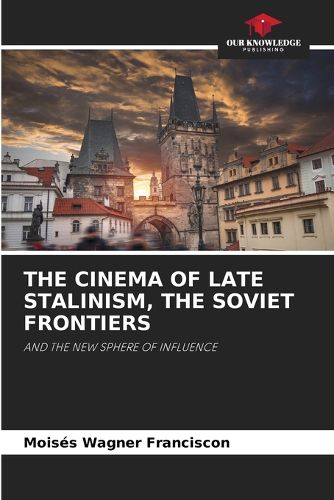Readings Newsletter
Become a Readings Member to make your shopping experience even easier.
Sign in or sign up for free!
You’re not far away from qualifying for FREE standard shipping within Australia
You’ve qualified for FREE standard shipping within Australia
The cart is loading…






During the 1930s, the USSR's cinema helped to construct the image of the Soviet Union as a country under siege, surrounded by enemies (which was helped by cultural roots and centuries-old historical experiences). This situation changed in the post-war period. The cinema now helped the regime to raise awareness, justify and legitimize the country's new level of power, raised from a regional power to a world superpower. The USSR now had allies in the West and the East. It needed to break out of its isolationism and become part of a global economic, social and political system. It had friends and subjects to protect, including from itself, such as the groups opposed to Sovietization. It needed to defend its new borders, which were increasingly similar to those of Tsarist Russia. And it needed to become a maritime power in order to maintain this system. Its directors, even reluctantly, undertook this task.
$9.00 standard shipping within Australia
FREE standard shipping within Australia for orders over $100.00
Express & International shipping calculated at checkout
Stock availability can be subject to change without notice. We recommend calling the shop or contacting our online team to check availability of low stock items. Please see our Shopping Online page for more details.
During the 1930s, the USSR's cinema helped to construct the image of the Soviet Union as a country under siege, surrounded by enemies (which was helped by cultural roots and centuries-old historical experiences). This situation changed in the post-war period. The cinema now helped the regime to raise awareness, justify and legitimize the country's new level of power, raised from a regional power to a world superpower. The USSR now had allies in the West and the East. It needed to break out of its isolationism and become part of a global economic, social and political system. It had friends and subjects to protect, including from itself, such as the groups opposed to Sovietization. It needed to defend its new borders, which were increasingly similar to those of Tsarist Russia. And it needed to become a maritime power in order to maintain this system. Its directors, even reluctantly, undertook this task.